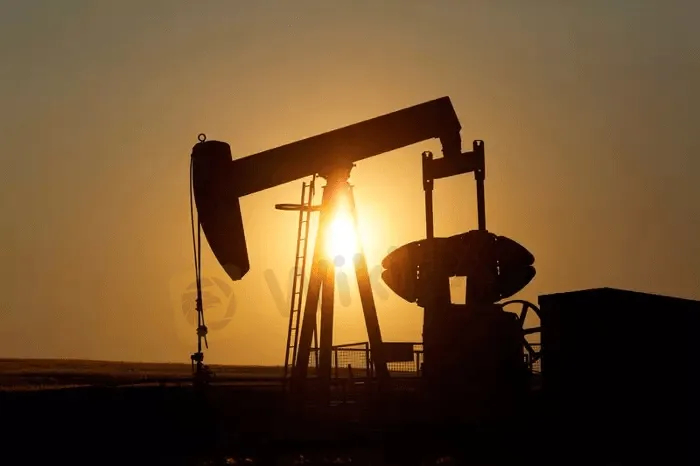简体中文
繁體中文
English
Pусский
日本語
ภาษาไทย
Tiếng Việt
Bahasa Indonesia
Español
हिन्दी
Filippiiniläinen
Français
Deutsch
Português
Türkçe
한국어
العربية
Oil rises on U.S. crude stocks data, tight supply outlook
Abstract:Oil prices eased on Thursday, reversing course from the previous session, as rising output from Russia and worries about a potential global recession weighed on futures.

Oil prices rose on Thursday as robust U.S. fuel consumption data and expected falls in Russian supply late in the year offset concerns that a possible looming recession could undercut demand.
Brent crude futures climbed $1.43, or 1.5%, to $95.08 a barrel by 0900 GMT. U.S. crude futures gained $1.15, or 1.3%, to $89.26 a barrel.
Prices rose more than 1% during the previous session, although Brent at one point fell to its lowest since February.
Futures have fallen over the past few months, as investors have pored over economic data that has spurred concerns about a potential recession that could hurt energy demand.
British consumer price inflation jumped to 10.1% in July, its highest since February 1982, intensifying a squeeze on households.
Chinas refining output remained lacklustre in July as strict COVID-19 lockdowns and fuel export controls curbed production.
Supporting prices, U.S. crude stocks fell by 7.1 million barrels in the week to Aug. 12, Energy Information Administration (EIA) data showed, against expectations for a 275,000-barrel drop, as exports hit 5 million barrels per day (bpd), the highest on record.
Bans by the European Union on Russian seaborne crude in December and on products imports early next year could dramatically tighten supply and drive up prices, analysts warn.
“The EU embargoes will force Russia to shut in around 1.6 million barrels per day (bpd) of output by year-end, rising to 2 million bpd in 2023,” consultancy BCA research said in a note.
“EU embargoes on Russian oil imports will significantly tighten markets and lift Brent to $119 a barrel by year-end.”
For now, however, Russia has started to gradually increase oil production after sanctions-related curbs and as Asian buyers have increased purchases, leading Moscow to raise its forecasts for output and exports until the end of 2025, an economy ministry document reviewed by Reuters showed.
Russias earnings from energy exports are expected to rise 38% this year partly due to higher oil export volumes, according to the document, in a sign that supply from the country has not been affected as much as markets originally had expected.

Disclaimer:
The views in this article only represent the author's personal views, and do not constitute investment advice on this platform. This platform does not guarantee the accuracy, completeness and timeliness of the information in the article, and will not be liable for any loss caused by the use of or reliance on the information in the article.
Read more

The Daily Habits of a Profitable Trader
Every professional trader follows a structured approach to ensure they are well-prepared, disciplined, and able to seize opportunities with confidence. Whether you are a seasoned investor or an aspiring trader, adhering to a robust daily checklist can significantly enhance your performance. Use this checklist to check if you are a qualified trader

The Impact of Interest Rate Decisions on the Forex Market
Interest rate changes determine currency attractiveness, influencing capital flows and exchange rate trends. Understanding this mechanism helps investors navigate the forex market effectively.

How a Housewife Lost RM288,235 in a Facebook Investment Scam
A 47-year-old housewife in Malaysia recently fell victim to an online investment scam, losing a substantial sum of RM288,235 after engaging with a fraudulent scheme advertised on Facebook.

A Trader’s Worst Mistake: Overlooking Broker Reviews Could Cost You Everything
In today’s digital age, reviews influence nearly every decision we make. When purchasing a smartphone, television, or home appliance, we pore over customer feedback and expert opinions to ensure we’re making the right choice. So why is it that, when it comes to choosing an online broker where real money and financial security are at stake many traders neglect the crucial step of reading reviews?
WikiFX Broker
Latest News
The Withdrawal Trap: How Scam Brokers Lure Victims into Paying More
FCA to Investors: Think Twice Before Trusting These Brokers
Trump\s tariffs: How could they affect the UK and your money
Trump gambles it all on global tariffs he\s wanted for decades
TradingView Brings Live Market Charts to Telegram Users with New Mini App
Trump tariffs: How will India navigate a world on the brink of a trade war?
Interactive Brokers Launches Forecast Contracts in Canada for Market Predictions
Authorities Alert: MAS Impersonation Scam Hits Singapore
Stocks fall again as Trump tariff jitters continue
IG Group Acquires Freetrade for £160M to Expand UK Investment Market
Currency Calculator







